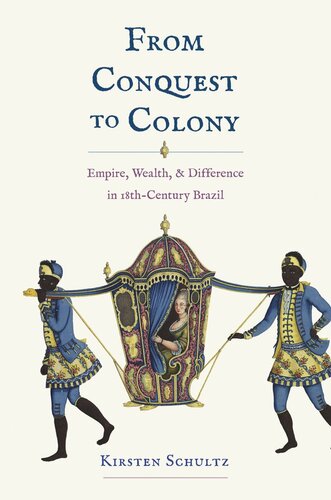

Most ebook files are in PDF format, so you can easily read them using various software such as Foxit Reader or directly on the Google Chrome browser.
Some ebook files are released by publishers in other formats such as .awz, .mobi, .epub, .fb2, etc. You may need to install specific software to read these formats on mobile/PC, such as Calibre.
Please read the tutorial at this link: https://ebookbell.com/faq
We offer FREE conversion to the popular formats you request; however, this may take some time. Therefore, right after payment, please email us, and we will try to provide the service as quickly as possible.
For some exceptional file formats or broken links (if any), please refrain from opening any disputes. Instead, email us first, and we will try to assist within a maximum of 6 hours.
EbookBell Team

5.0
40 reviewsA new history of Brazil’s eighteenth century that foregrounds debates about wealth, difference, and governance
Transformations in Portugal and Brazil followed the discovery of gold in Brazil’s hinterland and the hinterland’s subsequent settlement. Although earlier conquests and evangelizations had incorporated new lands and peoples into the monarchy, royal officials now argued that the extraction of gold and the imperatives of rivalry and commerce demanded new approaches to governance to ensure that Brazil’s wealth flowed to Portugal and into imperial networks of exchange.
Using archival records of royal and local administrations, as well as contemporary print culture, Kirsten Schultz shows how the eighteenth-century Portuguese crown came to define and defend Brazil as a “colony” that would reinvigorate Portuguese power. Making Brazil a colony entailed reckoning with dynamic societies that encompassed Indigenous peoples, Africans, and Europeans; the free and the enslaved; the wealthy and the poor. It also involved regulating social relations defined by legal status, ancestry, labor, and wealth to ensure that Portuguese America complemented and supported, rather than reproduced, metropolitan ways of producing and consuming wealth.